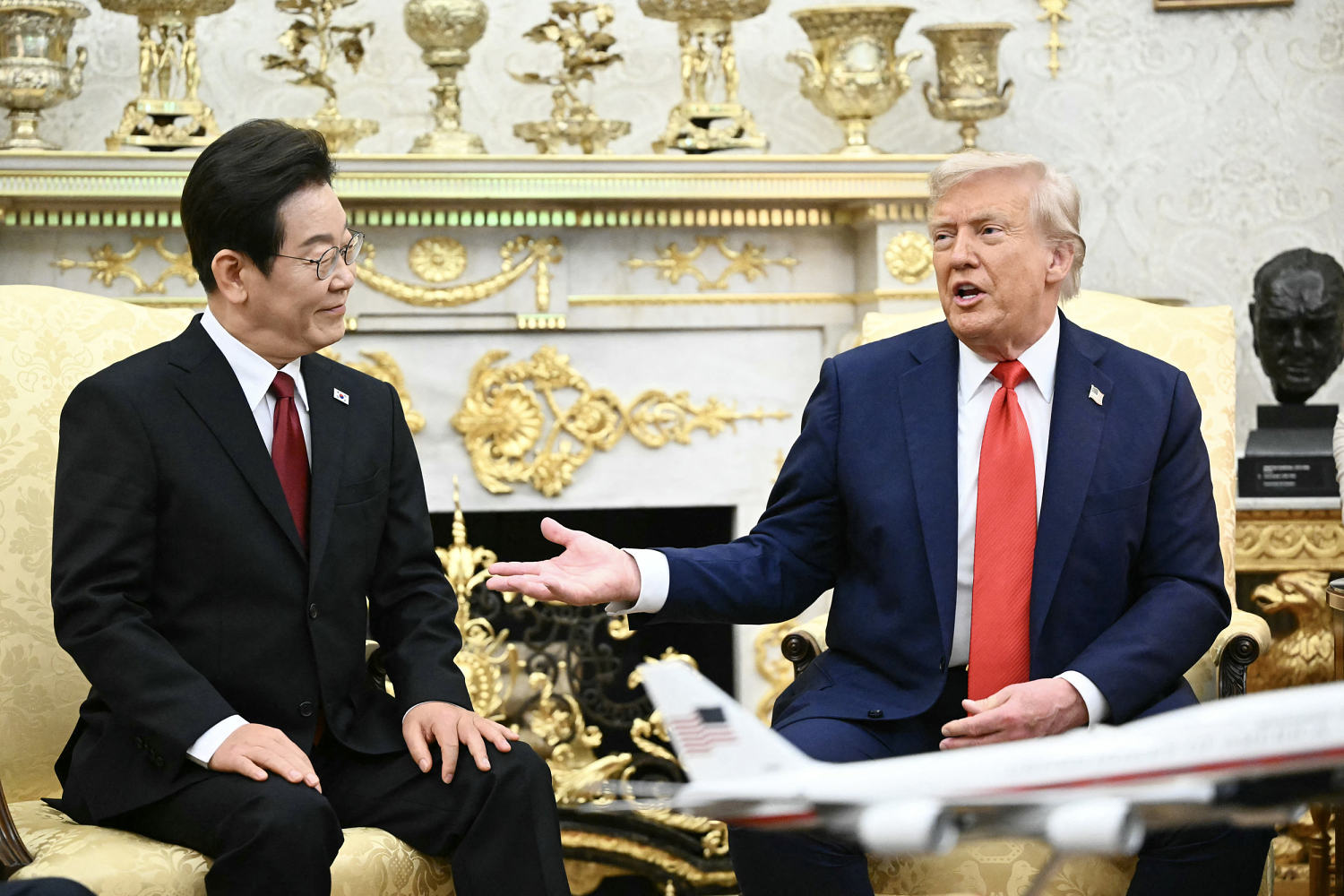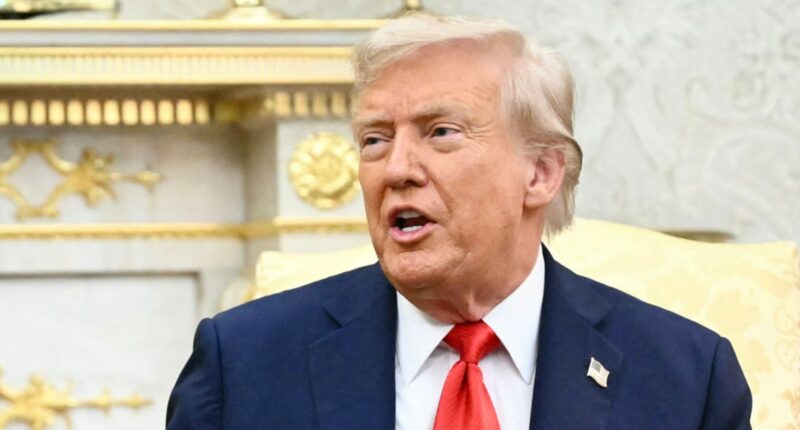Share this @internewscast.com

President Donald Trump’s recent remarks about permitting a substantial number of Chinese international students to study in the U.S. have met with opposition from some vocal members of the Republican Party.
Before his meeting with South Korean President Lee Jae Myung at the White House on Monday, Trump announced to reporters that he intends to allow 600,000 Chinese students into the United States — more than doubling the current number.
“We’re going to cultivate good relations with China. I hear stories saying ‘We won’t let their students in,'” Trump stated. “We’re going to allow them; it’s crucial, 600,000 students. It’s of great importance.”
This stance contrasts sharply with a previous declaration by Secretary of State Marco Rubio, who in May promised rigorous visa cancellations for Chinese students and heightened scrutiny on future Chinese visa applications.
While Trump emphasized the “important” ties with China, notable figures within his party expressed disapproval. Representative Marjorie Taylor Greene, R-Ga., criticized the proposal on social media.
“Why are we allowing 600,000 students from China to replace our American student’s opportunities?” Greene wrote on X. “We should never allow that.”
Additionally, far-right influencer and twice-unsuccessful Republican congressional candidate Laura Loomer condemned the idea, describing Chinese students as “Communist spies.”
“Nobody, I repeat nobody, wants 600,000 more Chinese ‘students’ aka Communist spies in the United States,” Loomer wrote on X.
Neither the White House nor the State Department immediately responded to NBC News’ questions about the shift in policy or criticisms from the members of the GOP.
On the Fox News show “The Ingraham Angle,” Commerce Secretary Howard Lutnick fielded criticism from host Laura Ingraham that Trump’s comments run counter to his “America First” policy, saying the move was an economic one.
“Well, the president’s point of view is that what would happen if you didn’t have those 600,000 students is that you’d empty them from the top, all the students would go up to better schools, and the bottom 15% of universities and colleges would go out of business in America,” Lutnick said.
There were an estimated 277,398 Chinese international students studying in the U.S. during the 2023-2024 school year. Together with students from India, the group makes up more than half of the international students in the country. In 2023 alone, Chinese students contributed upward of $14 billion to the American economy.
But Republican lawmakers have long attempted to stem the flow of Chinese students into the United States. In March, Republican congressmen introduced the Stop CCP VISAs Act, which would halt the issuance of student visas to Chinese nationals looking to study at American universities or take part in exchange programs. The bill drew widespread backlash from activists, schools and others, including Chinese students, who called the legislation the “new Chinese Exclusion Act.”
“I think it’s just blatant racism and xenophobia,” a Chinese student who recently graduated from a Washington, D.C.-area university previously told NBC News. The student requested anonymity out of fear of retaliation. “We are not spies. We are students who want to get a better education.”
Trump’s latest comments on students come as tensions between the U.S. and China have eased slightly from earlier this year when both countries threatened high tariffs. Talks have continued and tariff rates have cooled as a 90-day trade truce, established in May, was extended through November.
Trump told reporters that it is a “much better relationship economically than it was before with Biden.” However, on Monday he also threatened to impose 200% tariffs on China if the country does not export rare-earth magnets to the U.S.











